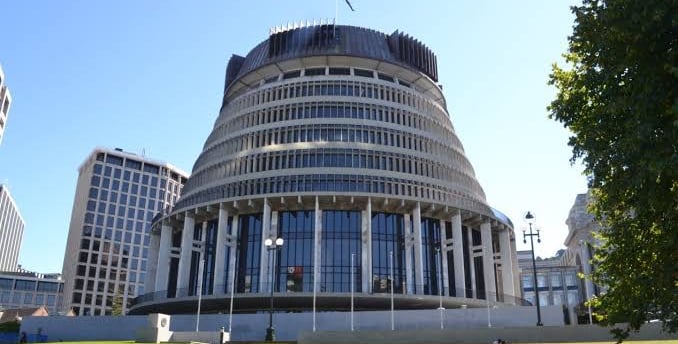Navigating Change in Aotearoa
Vote 2023: The Inevitable Impacts on Māori
OPINION


As the political landscape in Aotearoa undergoes a significant shift with the change from a Labour-led government to a National-led one in the 2023 elections, it is crucial to examine the potential implications for the Māori community. The tri-party alliance between ACT, NZFirst, and National has justifiably sparked concerns among many, especially for those who advocate for Māori rights and representation.
Historically, Māori have faced challenges in achieving equitable outcomes, and any alteration in government inevitably raises questions about the trajectory of policies affecting us. The Labour government, during its tenure, made strides in recognizing and addressing the unique needs of Māori, normalisation of te reo Māori, and engaging Māori communities but with the recent shift in power, there is a palpable concern about the continuity of these efforts.
The policy propositions between ACT, NZFirst, and National adds an element of uncertainty, as the three parties policy programmes bring distinct colonial ideologies to the table. Māori, like any other community, seek stability and assurance that their interests will not be sidelined in the wake of political change, yet 2023 bring the greatest prospect of colonial oppression we've seen in years. Gone are the days where it was essential for the government to engage in open dialogue with Māori leaders and communities to ensure their voices were heard and their concerns were taken into account.
The question of representation is also a critical aspect of this political transition. The Māori Party and the Greens, who have traditionally played a significant role in advocating for Māori and Land interests, faces new challenges with the altered political dynamics. The effectiveness of the left-wing voice against this tri-party alliance will be a key factor in determining the extent to which the anti-Māori rhetoric of the 2023 election campaigns are integrated into policy decisions.
Moreover, the success of any government lies in its ability to foster collaboration and inclusivity. As the tri-party alliance navigates the complexities of governing, it is imperative that Māori are as vocal as possible in the decision-making processes. The plans to repeal legislations and remove policies that directly impact Māori, such as those related to healthcare, education, and land rights, could see the devastation of efforts made for Māori to date without adequate, collective advocacy.
While change can be unsettling, it also presents an opportunity for constructive dialogue and collaboration. Māori leaders, activists, and community members have a pivotal role in holding the new government accountable for its promises and commitments to do better for all. By actively participating in the political process, Māori can help shape policies that not only address existing disparities but also pave the way for a more inclusive and equitable future.
Navigating Decision-Making in a anti-Māori Government
Navigating the waters of being part of decision-making processes within an anti-Māori government, especially when Māori predominantly sit in opposition, requires a strategic and resilient approach. While the shift to a National-led government, coupled with ACT and NZFirst, may present challenges for Māori representation, it is crucial to emphasize the importance of active engagement and influence.
In this scenario, Māori leaders find themselves in a unique position – that of being both advocates for their community and constructive contributors to the wider political discourse. Despite sitting mainly in opposition, it is essential for Māori representatives to seek common ground with decision-makers, emphasizing shared goals and the collective well-being of all New Zealanders.
Building alliances with like-minded individuals and parties, even those outside the traditional Māori political sphere, becomes a strategic imperative. By transcending party lines and fostering relationships based on common values, Māori leaders can amplify their influence and ensure that Māori perspectives are not overlooked in policy discussions.
Additionally, a robust communication strategy is paramount. Māori leaders need to effectively convey the impact of policies on their community and present well-reasoned alternatives. This involves not only addressing the immediate concerns but also highlighting the long-term benefits of inclusive and culturally sensitive decision-making.
Moreover, Māori leaders in opposition can leverage parliamentary processes to scrutinize and challenge policies that may negatively affect their community. Through participating in select committees, engaging in debates, and proposing amendments, they can actively shape legislation and hold the government accountable for its decisions.
Collaboration with civil society and advocacy groups becomes a powerful tool in amplifying Māori voices. By aligning with organizations that share similar concerns, Māori leaders can leverage collective strength to influence public opinion and apply pressure on the government to consider alternative perspectives.
In conclusion, while the shift in government brings uncertainties, it also presents an opportunity for Māori leaders to demonstrate resilience, strategic thinking, and commitment to the well-being of their community. By actively engaging in decision-making processes, building alliances, and utilizing parliamentary avenues, Māori can continue to be a force for positive change, even in the face of political transitions that may not align with their immediate interests.



